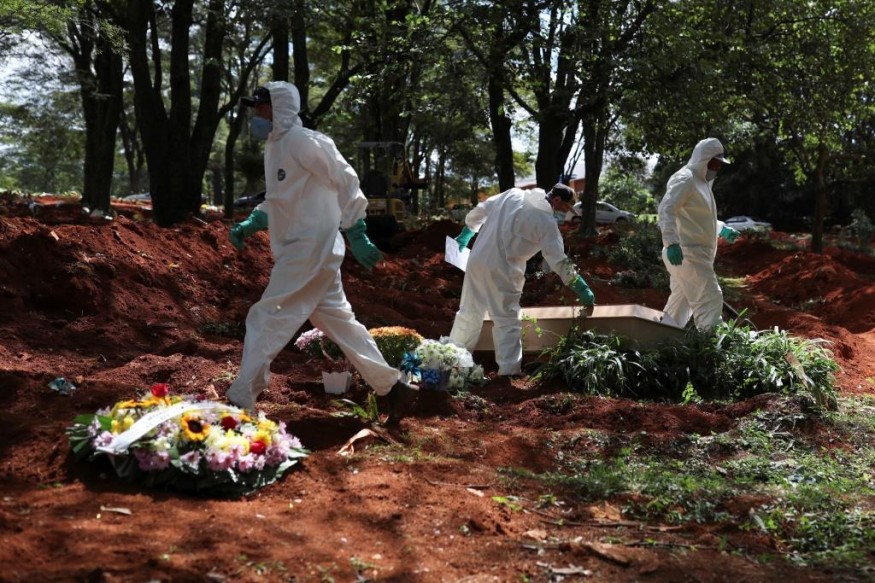6-Minute Burials: Cemetery Prepares for Major COVID-19 Impact in Latin America

Latin America's biggest cemetery, a never-ending stretch of graves, on the Sao Paulo outskirts, has currently adapted to the new funeral rites, in this time of COVID-19 pandemic-no hugs, no wakes, and short six-minute burials.
What's even sadder is that the cemetery is even preparing for things to worsen. One of the most recent afternoons at Vila Formosa Cemetery arrived at the coffins. They arrived so fast that the grave-diggers needed "to ask the mourners to wait."
Incidentally, mourners who had "D3" marked on the death certificates of their loved ones for either suspected or confirmed COVID-19 cases, were given an order that funeral parties should be kept to below 10 mourners, and no embracing and open caskets are allowed.
There some families who were not able to hold back and eventually, they collapsed into the arms of their loved ones amid the strong call for social distancing.
Burials in Just Six Minutes
Ricardo Santos sadly told of his grandmother's death whose COVID-19 test has not come out yet. He said, his grandmother "had symptoms and got tested" but was told it would take two more weeks before the result would be available. She did not live to see those results.
Santos said, his 92-year-old grandmother, Regina Almeida had a very quick funeral ceremony. The closed casket, he recounted, was wrapped in a cloth to avoid the virus from spreading fast.
Burials, he continued, took only six minutes in all, from the time the hearse opened to the flowers which were laid on the closed tomb.
Sweating under the heat of the sun in gloves and masks, and wearing white protective suits, grave-diggers started to lower four caskets into one grave, in roughly 30 minutes: one confirmed COVID-19 case and three suspected victims.
Moreover, in the same cemetery, Genilton De Santana was having his father, Jose, a 77-year-old suspected COVID-19 patient, wearing a mask on his face with just one friend beside him. As mentioned, his dad's cause of death had yet to be determined as they were still awaiting test results.
Enraged, De Santana said, "Show people that and see" if they have started to understand the seriousness of this pandemic.
Little, but Deadly, Flu
Jair Bolsonaro, the Brazilian President, has repeatedly minimized COVID-19, comparing it to what he described as a "little flu," cautioning against panic and reprimanding the local officials for closing schools and businesses. However, this reaction from the President goes in contrast to the recommendations of containment of the World Health Organization (WHO).
Ironically, just this week, the federal government, allowed burials without the death certificate in exceptional conditions, anticipating a rise in funerals, even as the president minimized the pandemic which as of this writing, has already infected over 1 million, and killed more than 50,000 people globally.
Relatively, COVID-19 has probably just got started in Brazil, the most affected country in Latin America, now with more than 6,000 confirmed cases, and over 200 fatalities so far.
The Pressure Now on Vila Formosa
Typically, a gravedigger said, they burry around 45 people each day. Last week though, he continued, "there were 12 to 15 more every day." The situation, according to this cemetery worker, is a lot worse compared to what the public sees on the news.
Sao Paulo, with a 12-million population, is reportedly the epicenter of the pandemic in Latin America with almost 3,000 confirmed cases as of this writing. And, as it braces for the swelling in burials, the city hired over 200 more temporary workers to help in its 22 other municipal cemeteries.
Subscribe to Latin Post!
Sign up for our free newsletter for the Latest coverage!
© 2026 Latin Post. All rights reserved. Do not reproduce without permission.











